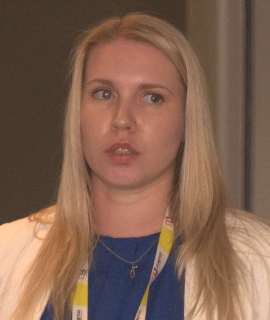Title : Modulating effect of low and high temperatures on wheat reaction to cadmium stress.
Abstract:
The comparative study of wheat plants response to cadmium (Cd) impact in combination with normal (22°C), low (4°C) and high (37°C) temperatures was performed. The similarities and differences of wheat plants responses to these stresses were observed. In particular, plant growth was more reduced under combination of cadmium with low and high temperatures than at 22 ° C. According to the results of electrolyte leakage, MDA content, Cd accumulation, it was found that in combination of cadmium with low or high temperature, the temperatures have dominant effect, and reaction of plants was similar with the response to separate effect of cold or heat. Moreover, the response of plants to cadmium in combination with high temperature has been faster and more pronounced than at normal and low temperatures.
It is well known, that the low-molecular-weight protectors, including proline play one of the key role in plants tolerance to stress. Proline as an osmoprotector is very efficient for plant adaptation to unfavorable temperatures influence. With this context, the role of proline as well as the expression of WP5CS gene, encoding pyrroline-5-carboxylate synthetase were studied in wheat at cadmium influence in combination with normal (22°C), low (4°C) and high (37°C) temperatures. It was found that at cadmium impact at normal temperature the proline content slightly increased. Whereas accumulation of proline dramatically increased in wheat leaves under cadmium treatment in presence low (4°C) and high (37°C) temperatures. It should be noted that at combination of cadmium and heat the proline content was almost twice as much at cadmium and its combination with cold influence. Probably, in this case a significant increase in the accumulation of proline caused of the protein degradation and did not concern its protective role. This is proved by protein content data. Also the proline content correlated with the changes in WP5CS gene expression in wheat.
Summarizing all results, we can conclude that the low and high temperatures in combination with cadmium modulate the reaction of plants to cadmium impact. Particularly, low temperature prevents cadmium accumulation and plants can adapt to this stress. On the other hand high temperature leads to higher cadmium accumulation and as a result caused to damage effect on plants.



